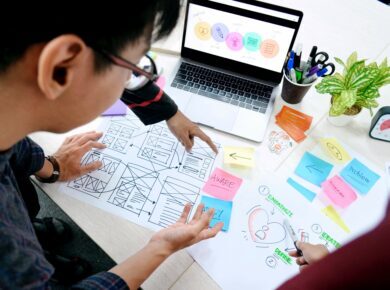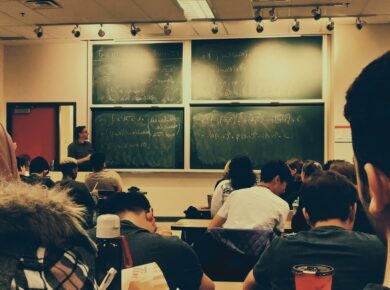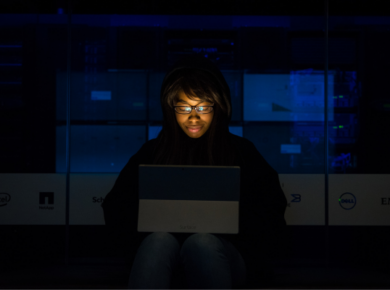Do you ever struggle to make decisions or wonder if the information you’re reading or hearing is reliable? If yes, developing critical thinking skills will help you navigate these challenges. But what are critical thinking skills exactly? They’re the ability to analyze, evaluate, and interpret information logically and systematically. In today’s constant information overload, strong critical thinking skills are more important than ever. Let’s dive in and explore how you can improve your critical thinking skills and make better decisions.
What Are Critical Thinking Skills?
Critical thinking skills are the ability to analyze, evaluate, and interpret information rationally and systematically. Such thinking skills help individuals to identify assumptions, evaluate arguments, and draw logical conclusions. Critical thinking skills are essential for academics, career, and personal success.
Why Is Critical Thinking Important?
In today’s world, critical thinking skills are more important than ever. With the vast amount of news available, it is essential to sift through information and determine what is valid and relevant. Critical thinking skills allow you to make informed decisions, solve complex problems, and communicate effectively with others.
Suppose you are a student struggling with making a connection between topics or coming up with interpretations. You must invest time and effort into mastering critical thinking skills to achieve better grades and understanding. That’s because, in college, you need to analyze and evaluate information, form opinions, and present logical arguments.
Not only in an educational institution are critical thinking skills valued. In the workplace, employers highly value employees with critical thinking skills who can analyze complex information, think creatively, and make informed decisions. Critical thinking skills are also essential for problem-solving and innovation, which are increasingly important in today’s rapidly changing job market.
Therefore, developing critical thinking skills is crucial for students and employees. It takes practice and effort, but the rewards are significant. By developing critical thinking skills, you can become more successful academically, personally, and professionally.
10 Critical Thinking Skills
Now that you’ve realized the importance of honing your critical thinking skills, you’re probably eager to learn more about each one and how to improve them. Well, you’re in luck because you can make great strides in becoming a well-rounded individual with a bit of effort and dedication. Remember, every step you take toward self-improvement is an investment toward a brighter future.
1. Research
Research skills are essential for students to gather information from various sources and assess the credibility and relevance of that information. Improving research skills requires learning practical research strategies, such as identifying relevant keywords, using advanced search techniques, and evaluating sources for reliability, credibility, and bias. You can also enhance your research skills by practicing effective note-taking, summarizing and synthesizing information, and using citation tools to document sources appropriately.
2. Analysis
Analytical skills are necessary to break down complex information into smaller parts and examine how they relate. To improve analytical skills, you should learn to identify patterns and relationships, develop hypotheses, and use logic and reasoning to conclude. You can also practice using data analysis tools and techniques, such as creating tables and charts, applying statistical methods, and using visualization tools to help you analyze and interpret information effectively.
3. Interpretation
Interpretation skills are crucial for comprehending and effectively communicating the meaning of information from various sources. They involve analyzing, synthesizing, and evaluating complex ideas and identifying patterns and trends. These skills are essential in the workplace for processing large amounts of data, understanding reports, and communicating findings.
They are also crucial in academia for analyzing research articles and communicating results to peers and faculty. In everyday life, interpretation skills help you navigate information overload, distinguish fact from opinion, and make informed decisions. Improving interpretation skills allows individuals to understand the world better, communicate effectively, and make informed decisions that affect their lives.
4. Inference
Inference skills are crucial for drawing logical conclusions based on evidence and reasoning. To improve inference skills, learn how to identify assumptions and biases, evaluate evidence and arguments, and make informed judgments based on evidence. In addition, you can also practice using deductive and inductive reasoning to make predictions, conclude, and test hypotheses.
5. Identification
Identification skills help you recognize and distinguish between different types of information, such as facts, opinions, and hypotheses. Suppose you need help with identification skills and want to improve them. In that case, you should learn how to identify the purpose and intended audience of different types of information, distinguish between fact and opinion, and evaluate the credibility of sources. You can also practice identifying various forms of bias, such as confirmation and selection, and develop strategies for avoiding them.
✅ Request information on BAU's programs TODAY!
6. Curiosity
Curiosity is a crucial thinking skill that drives individuals to discover and comprehend the world around them. Such skill includes the thirst for knowledge, eagerness to explore new ideas, and the willingness to ask questions. To enhance one’s curiosity, you should ask thought-provoking questions, seek diverse and stimulating experiences, and delve into unfamiliar subjects or topics. Doing so can expand your intellectual horizons and broaden your perspectives on life.
7. Evaluation
Evaluation skills help you assess the quality and credibility of information and arguments. It includes identifying biases and assumptions, evaluating evidence, and determining the relevance of data. Improve your evaluation skills by practicing analyzing and evaluating information and arguments from various sources, including print and digital media.
8. Communication
Communication skills involve expressing ideas, opinions, needs, and information clearly and effectively, orally and in writing. The lack of such skills leads to issues of different kinds. More specifically, data shows that 42% of employees experience burnout due to communication-related problems in their workplace.
To improve communication skills, you should practice communicating your thoughts and opinions clearly and effectively, listening actively, and responding thoughtfully to others.
9. Open-mindedness
Open-mindedness is a valuable skill because it allows you to approach new situations and ideas without preconceptions or biases and consider various perspectives when making decisions. Below you will find some reasons why improving open-mindedness skills is essential:
- Enhances problem-solving
- Fosters creativity
- Increases empathy and understanding
- Improves decision-making
- Facilitates personal growth
Ways to improve open-mindedness include being curious, actively listening, challenging assumptions, practicing mindfulness, engaging in diverse experiences, reading widely, and embracing discomfort.
10. Problem-solving
Problem-solving skills involve identifying problems, analyzing the situation, and developing and implementing accurate solutions. To improve problem-solving skills, you should practice identifying and analyzing problems, brainstorming potential solutions, and working collaboratively with others to create effective solutions.
The Bottom Line
In conclusion, critical thinking skills are essential for anyone wanting to succeed in school and beyond. You must continuously work on improving these skills as you will benefit all aspects of your lives, both personal and professional. By developing critical thinking skills, you will become a more effective learner, problem-solver, and decision-maker and better equipped to navigate the complex challenges of the modern world.













